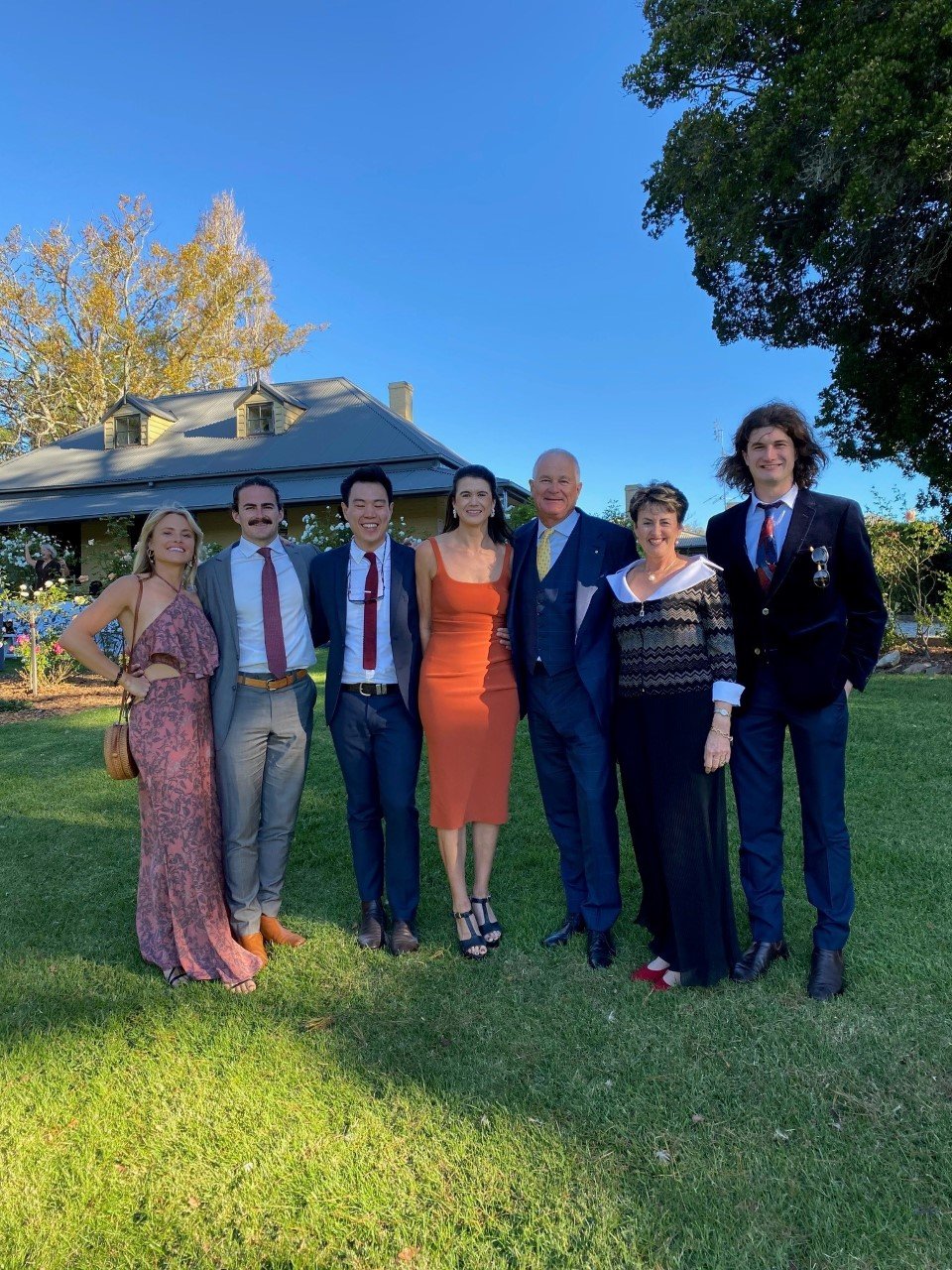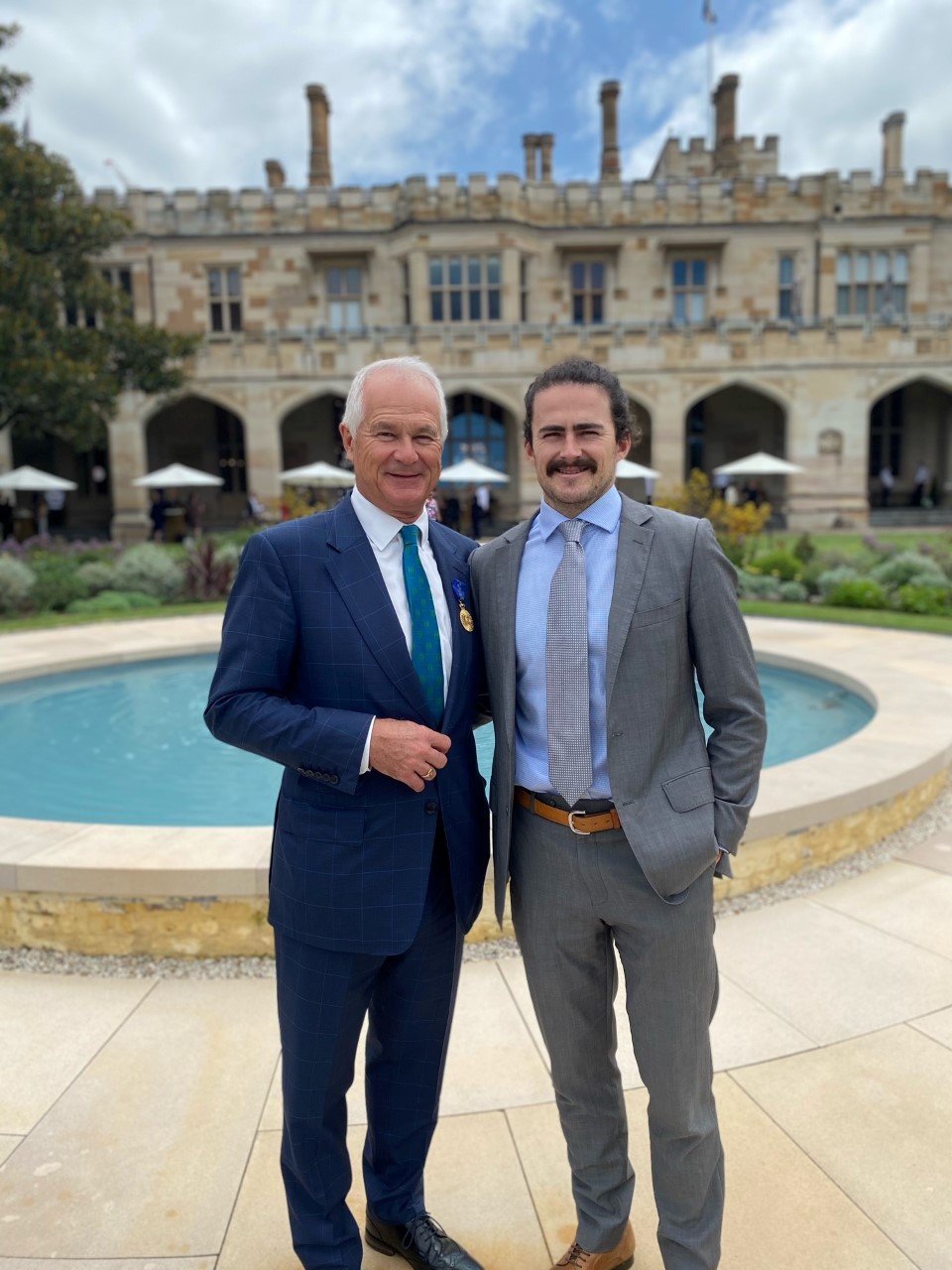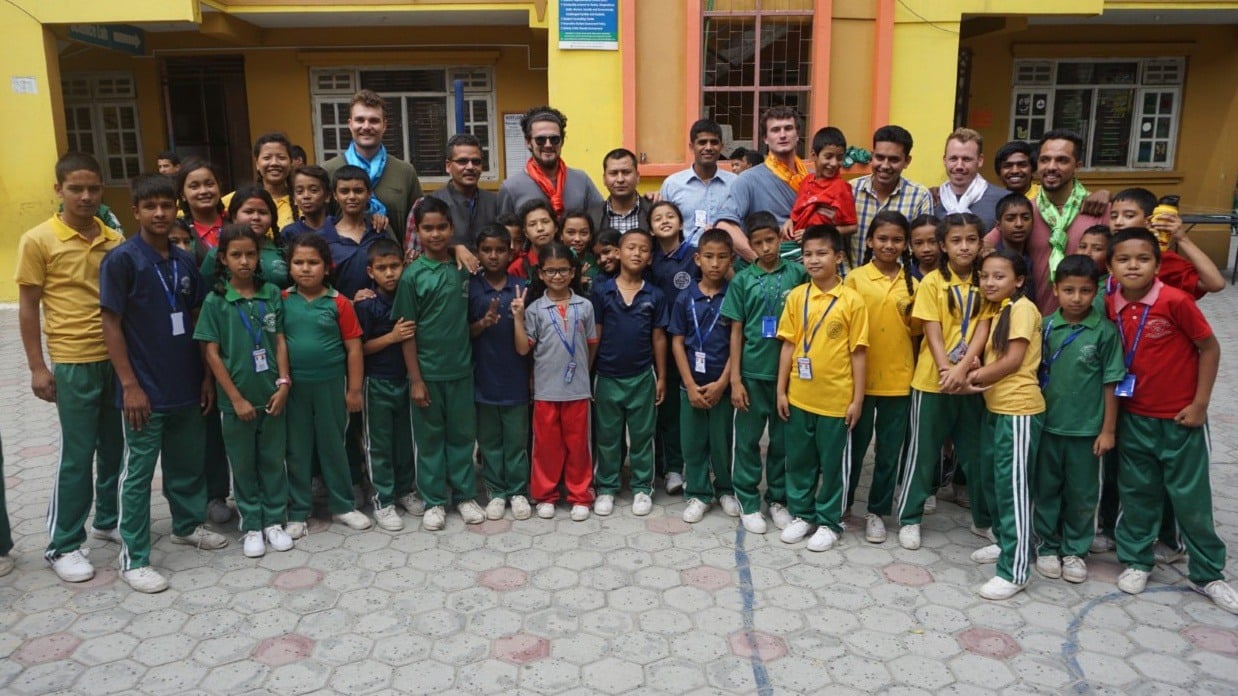Home Articles Client stories Intergenerational giving with the Vaux family
Intergenerational giving with the Vaux family
Written by Fiona Higgins
Like many APS clients, David and Sarah Jane Vaux established their PAF when their children were small and have used the structure to help embed the family’s belief in the need to help others. David and his son Jonny spoke with Fiona Higgins about the formative influences that shaped the foundation, the power of immersive philanthropy, and the rising generation’s engagement in the foundation’s work.
David: We set up the Vaux Family Education and Learning Foundation about 13 years ago, when our children – Lucy (30), Jonathan (27) and Charlie (23) – were still at school. For us, it was important to share with our children the importance of giving back. None of us is particularly religious, but our children’s Catholic school system reinforced that core family value of generosity. From an early age, they were each instilled with a profound sense of the need to help and support others.

"It was important to share with our children the importance of giving back."
The Vaux family
I’ve been passionate about education all my life. My mother was a school teacher for 40 years, and for her, education and learning were the keys to an enriched life, and she passed that philosophy onto me. My father died when I was quite young, so my mother worked very hard to send me to a good school in Perth. From that formative education, I went on to complete law degrees, a Masters’ degree and to work all around the world. Scholarships enabled most of that study. I’ve always felt that a fundamental part of who I am is giving other people the kind of educational opportunities that were afforded to me. An educational leg-up is critical.
That’s why our foundation focuses exclusively on education and learning opportunities. In the 13 years since inception, we’ve made significant donations to various not for profits focused on education, learning, teaching and training, both internationally and domestically.
My children’s engagement in the work of the foundation has grown over that time – they’ve been involved in selecting donation recipients, as well as in discussions about donation policy and strategy at our regular foundation meetings.

"A fundamental part of who I am is giving other people the kind of educational opportunities that were afforded to me."
David Vaux, left, with his son, Jonny
Perhaps one of the more important milestones in our family philanthropy was a trekking holiday we took to Nepal in 2009, which became quite an immersion experience. While we were there, we saw the inspiring work of an Australian teacher, Pat Price, at Heartland College in Kathmandu. We’d already been supporting Heartland through the LBW Trust (Editor’s Note: of which David is now Chair), a DGR Tier 1 charity that supports tertiary and vocational education programs for students in cricket-playing developing nations including Nepal, Afghanistan, Pakistan, Sri Lanka and India. At Heartland, we saw how Pat’s work as an educator had been transformational. He’d incorporated the best of Western education within the existing Nepalese system – reducing class sizes, removing corporal punishment, supporting students from all castes of society.
It was sobering and inspirational for our family, and I think it galvanised us to continue giving – especially the boys, who have since returned to visit the College in 2017. Through the LBW Trust we’ve supported a new matriculation college at Heartland, and their teachers’ training course. It’s been satisfying to be part of such an important educational initiative. While people often say, ‘charity begins at home’, and I respect those who subscribe to that, personally I’m passionate about international development. I believe that as a world, we need to build bridges across our global communities, not walls. Our foundation gives about 60% of our funding to international causes.
Our children have become very passionate about the work of our foundation. In Australia, we are major donors to education through the arts – for example, we support the Sydney Theatre Company (STC) in-schools education program, which extends to juvenile justice centres and the Kings Cross Theatre. That part of our giving resonates with our youngest, Charlie, who is a theatre curator and director himself; he’s seen the power of drama to enable young people to better express themselves both orally and in writing. As a family, we recognise that it’s his passion – and it’s perfectly acceptable to pursue such passions in philanthropy. For us, combining clarity of focus – firmly targeted at education and learning – with individual passion leads to good community outcomes and good family outcomes.
Jonny: I was 14 when we visited Heartland for the first time. It had a significant impact on me, seeing what Pat Price had created there – an incredible educational facility of safety and order in the middle of chaotic Kathmandu, where kids could learn and play and grow – and how much it meant to the surrounding community. Many of the kids there have survived trauma, yet they were so receptive and generous to visitors. When I returned in 2017, I saw how much Heartland had evolved in just eight years. It had grown physically – there was a new library – and could now maximise and sustain its impact for the longer-term benefits for its students. For example, they’d introduced a ‘Year 13’ matriculation program to train the students as teachers themselves.

"Solutions are multi-faceted. Heartland as a charity has been very good at finding different ways to achieve community outcomes and to apply metrics around their work."
Jonny Vaux
The foundation has shifted from initially being quite broad in its giving to a more focused approach. In recent years we’ve had good discussions around what it means for us to be truly effective in our giving; there’s never been heated disagreements, but the discussions have been robust. For example, Mum and Dad were originally supportive of a number of schooling programs that they’d had experience with. From my perspective, I thought our funding dollar could go further by supporting other causes. After a number of years, we all arrived at the same conclusion and decided to redirect our support. It was a discussion that evolved over time, which is entirely natural because some causes are going to hold greater emotional sway for some members of the family. You have to respect that, but you have to keep having the discussion too.
In the next 10 years as a foundation, I hope that we’ll start thinking more about refining our giving program even further and becoming more targeted with our mandate around education. Perhaps being a bit more scientific about it and extending the process of refinement that’s already been taking place over the last 13 years. We’ve needed that time to start understanding what it is that we want to achieve and what effective giving means. However, in say, 20 years, I’d imagine our giving might have greater rigour and research behind it, helping us to make more informed choices. We know we want to invest in education and learning, for example, but do we understand how much greater our ROI might be if we invest more heavily in the education of girls and women? Also, as time passes and the quantum we’re giving away grows, there’s an additional level of responsibility on us as decision-makers to ensure that the funding is applied in the most effective way.
One thing I’ve learned so far from my involvement at the foundation is that you can’t just throw money at a problem. Solutions are multi-faceted. Heartland as a charity has been very good at finding different ways to achieve community outcomes and to apply metrics around their work. The STC education program we support is another example of how community solutions can be delivered via seemingly indirect routes. Their program educates teachers to raise literacy rates and confidence levels in kids through the medium of theatre and performance rather than through specific literacy or mental health programming. There’s always a suite of solutions needed to tackle these complex issues. If someone’s hungry, you don’t just feed them; you also teach them how to farm.
It’s been a process of education for all of us, trying to understand effectiveness and impact better. I think our philanthropy is a means for us to educate each other, too. I’m learning to understand how theatre can be transformative, which Charlie, who works in theatre, already understands. Lucy and her fiancé are both doctors, and I work with healthcare companies, so we can share ideas around health interventions and research. Each family member has individual skills and interests, but they’re definitely complementary, which I think is helping our foundation to be more effective in its philanthropy.
Seeing firsthand our foundation’s funding at work at Heartland certainly drove home to me the impact that philanthropic dollars can have. When Mum and Dad first started the foundation, they were always very open about it with us. They encouraged us to ‘buy-in’ and get involved in helping to steer its giving decisions by asking us to bring ideas for funding from organisations we were involved in ourselves. It was a smart move by Mum and Dad. That process of bringing ideas forward helped us to start thinking about not only what charities do in terms of services and programs, but how they plan to use the foundation’s funding, how far that funding can realistically go and where charities can achieve greatest impact. It helped shift the discussion from ‘feelgood’ to a more ‘return-on-investment’ style of thinking.
